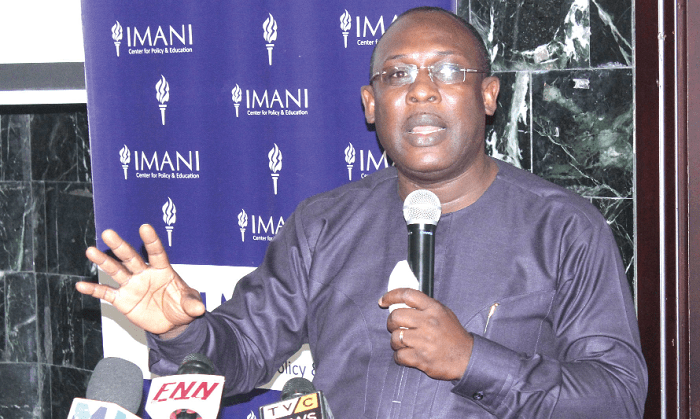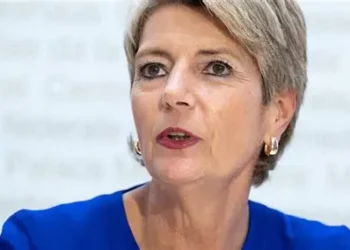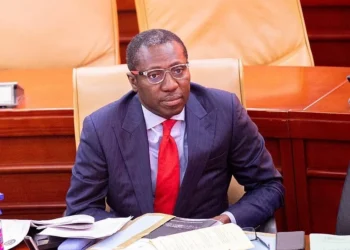In a stirring proposal to the Constitution Review Committee, Kofi Bentil, Vice President of IMANI Africa, has called for sweeping constitutional reforms in Ghana’s national governance system—beginning with a comprehensive electoral reform.
According to Bentil, this is a once-in-a-generation opportunity to restructure the core of Ghana’s political system.
His vision? A complete transformation of how public officials are selected, laws are made, and governance is carried out across the country.
“Elect DCEs and create a REGIONAL ASSEMBLY OF DCEs, noting that the REGIONAL ASSEMBLY OF DCEs elects 2 Persons from each region to be Parliamentarians, and appoints 2 more to make 4 Parliamentarians from each region (thus cutting our Parliament down to 64 people from the regions. We don’t need more than that for serious lawmaking.”
Kofi Bentil

According to him, this would lead to a more streamlined and regionally representative Parliament consisting of only 64 members—significantly fewer than the current setup.
Bentil underscored the critical need for immediate action, stressing that Ghana’s foundational national systems must undergo a complete transformation from the ground up, beginning with a bold and comprehensive electoral reform.
New Selection System Proposed for Constitutional Reform
Kofi Bentil further suggested a clear distinction in qualifications for roles. While anyone can become a DCE, he believes that a university education and English proficiency must be mandatory for MPs, whether they are elected or appointed.
He argued that appointing some MPs is essential to include those with invaluable insights who may avoid the political arena. “We lose by leaving them out,” he said.
To counterbalance political dominance, Bentil proposed allowing reputable professional groups—including the Ghana Medical Association, the Ghana Institute of Engineers and Architects, and associations of nurses, teachers, and bankers—to each appoint a representative to Parliament.
This, he claims, would build a 100-member Parliament where political influence is significantly diluted.“Imagine a Parliament like that—no political party can mess with that as we have seen for over 30 years!” he noted.
Bentil did not hide his opposition to universal adult suffrage (UAS) across all levels of governance.
He maintains that it should apply only at the local level. He pointed to countries like the United Kingdom and the United States, which use alternative systems such as the Electoral College and proportional representation.

Bentil’s proposal extends to restructuring the separation of powers among the three arms of government.
He wants a strong barrier to prevent members of the executive from serving in Parliament or sitting on boards. “So the President is elected by the UAS, and Parliament is partly elected and partly appointed. And they should not mix.”
Judicial appointments, in Bentil’s view, also need reform. Judges should be selected by the Judicial Council and voted on by members of the legal profession. Only those who meet a set threshold would be appointed as judges.
Bentil argued that lawyers and judges themselves are best placed to assess judicial quality: “The best persons who know the quality of a judge are the people they work with.”
Term Limits, Pay Reform, and Defense Restructure
Kofi Bentil also called for term limits for Supreme Court Justices and other constitutionally protected office holders like the Auditor General and the Electoral Commission Chair.
He proposed a five-year term, renewable once, with an optional third term granted only by a two-thirds majority in Parliament.
He did not mince words about scrapping the Council of State and Regional Ministers, calling for their outright abolition. In a cost-cutting measure, he wants to cap the number of ministerial appointments at 50.
Another major recommendation is the formation of a unified National Defense Force that consolidates the police, military, fire service, and customs personnel into one coordinated structure.

“We don’t need an Army that only trains and waits when we have never had a war and are not likely to have one!! And if we do have a war, we will mobilize all these servicemen anyway!! So, draft and pass the ‘Ghana security services Act’ to create this unified force, and let’s use them as a powerful unit.”
Kofi Bentil
Bentil also envisions a more efficient parliamentary process by turning the National Development Planning Commission (NDPC) into a think tank akin to the United States’ Congressional Budget Office (CBO).
One of the most radical proposals is the deletion of Article 71, which currently sets salaries for public officials. Instead, Bentil proposed a scalable model tied to the national minimum wage.
“The president shall earn 8000 times the minimum wage, and it cascades from there downward,” he stated, arguing that such a structure would ensure that all public servants rise and fall with the economic well-being of the people.
While acknowledging that these reforms may not be implemented soon, Bentil expressed deep conviction in his blueprint for change.
“There is nothing in Ghana to manage!! Everything must be transformed,” he said, adding that he would hold on to these ideas unless presented with a better alternative.



















